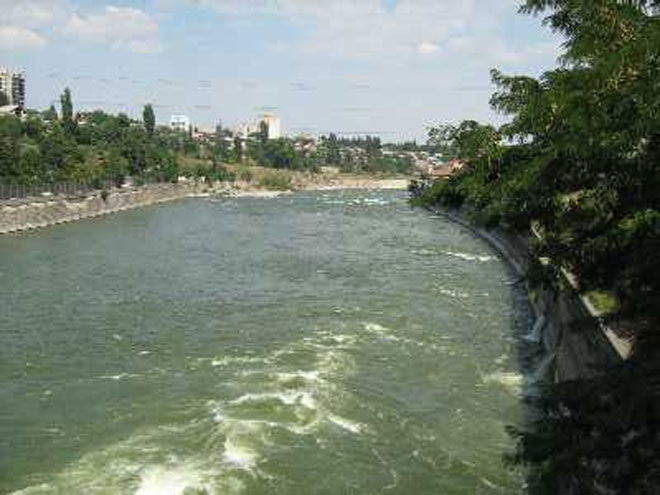Baku, Azerbaijan, Jan. 28
By Viktoriya Zhavoronkova - Trend:
Long-lasting water distribution problems in Central Asia, something which affects all states of the region is far from being solved in near future.
Root of the problem
At times we underestimate the value of water as natural wealth, forgetting that in ancient times people established settlements near water sources and went to war to secure them.
Modern communities have come a long way exploring science, technology, producing gold, oil and gas. They obtained benefits, such as water supply and irrigation systems, but they are still fighting for water.
Water distribution issues have become one the most problematic for the Central Asian countries since the USSR collapsed. This issue touches all five countries of the region, but Kyrgyzstan, Tajikistan and Uzbekistan are the major actors in this long-lasting dispute.
Tajikistan and Kyrgyzstan plan to construct hydropower plants Rohun and Kambarata HPP-1 on regional trans-boundary rivers Amu Darya and Syr Darya. And Uzbekistan is opposed this idea because it believes that water shortage will appear after those countries will start the exploitation of these power plants. This shortage may harm one of the country's major economic areas of agriculture - cotton production.
During the Soviet period Moscow was controlling the Union's economy, so Kyrgyzstan and Tajikistan were producing electricity using Uzbekistan's energy sources for free and had no need to construct hydropower plant. After the USSR collapsed, Uzbekistan started selling its hydrocarbons, but water in the regional rivers remained free. This made upper countries to find the solution, which, they believe, is hydropower plans.
Ineffective mediators
The water problem of Central Asia worries not only the regional players, but almost all major international organizations, such as United Nations, European Union and others. During these years of polemics great number of mediators tried to help the sides to agree.
The World Bank even undertook obligations to hold independence expertise of Tajikistan's Rohun hydropower plant project to find out whether it will really harm water supplies to downstream countries. But, due to unknown reasons, they delay the publishing of this expertise's result for about two years.
The latest discussion in this regard was held last week in Tashkent between the EU Special Representative for Central Asia, Patricia Flor and Uzbek government.
This discussion, as many others before, brought nothing but words to the negotiation process. Here appears a question, what should happen for this problem to be settled?
Possibility of water conflict
In spite of great number of speculation, armed conflict in Central Asia in present conditions is impossible. Uzbek President Islam Karimov ones even threatened its regional neighbors with starting war, but hardy somebody believes in such scenario. Upper Tajikistan and Kyrgyzstan are way too weak to fight with technically strong Uzbekistan.
Tashkent in his turn might start a conflict in case these two states fulfil their energy projects. Tajikistan and Kyrgyzstan are also way too weak due to economic and political problems to do implement there projects without external assistance, and they will hardly be able to find strong foreign allies in this issue, because no one is interested in being involved in a conflict.
What can change the situation in Central Asia
Something serious and fatal should happen in the region to move this problem towards its, may be not final but at least partly, resolution.
The current regional governments are not guilty for this occurred situation; water problem appeared due to the specifics of the USSR's economy. But, they are strong in their positions concerning water problem. Maybe when and if the regional leaders will change, new ones will be able to agree somehow and find common solution of this problem.
Also nature may show the solution itself. The area of Amu Darya and Syr Darya basins is an active seismic zone. In case of a strong earthquake, possibility of which is very high in this region, the destruction of power plants' damps will cause strong flood downstream. But this is very dangerous and bad scenario, so the sides should forestall it.
So what do we have now? USSR's heritage in a form of stagnated problem, that for a long time causes energy problems in upper countries - leave people without light and warmness. On the contrary, if this problem is solved to the favor of Tajikistan and Kyrgyzstan, downstream countries will be left without water and in case of natural disaster villages and towns there may be washed away.
So, there should be some third resolution way that will satisfy all the parties of water dispute. Now, it is hard to predict what exactly this will be, but the sides at least should start to negotiate in order to finally leave this water vicious circle.






